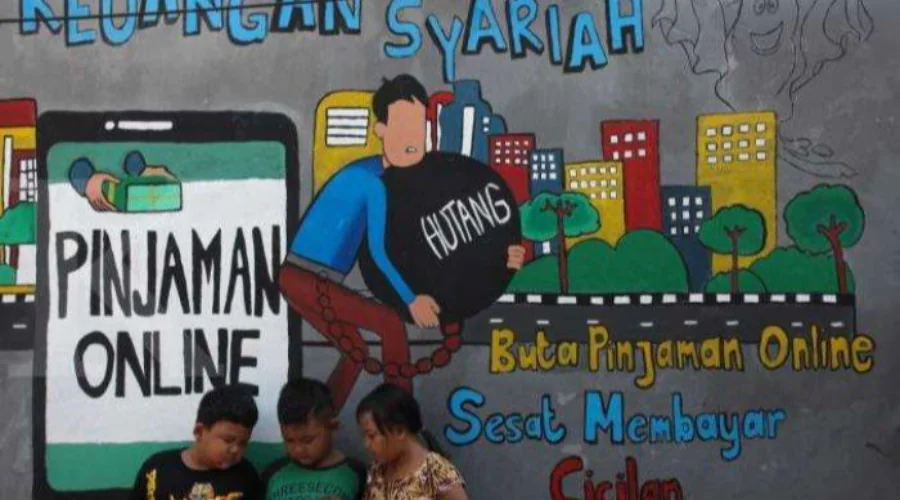
- 05 Mar
- 2022
Ilustrasi gambar mural di kawasan Tempurojo yang digagas oleh Arin Setyowati dan tim (Dok:pribadi)
UM Surabaya Economic Expert Shares Tips to Avoid Illegal Loans
Fintech Peer to Peer (P2) Lending or better known as Online Loans (Pinjol) is the reincarnation of the form of traditional loan sharks that were previously run by "Bank Titil" which went door to door every week to every day to residents' homes and sellers in market.
Driven by the rapid pace of development of information technology, moneylenders use information technology to run their usury business amidst the large market demand due to the increasingly difficult economic cessation, coupled with the crisis during the pandemic. So that adding to the excitement of welcoming the presence of borrowers to the community is an inevitability of a solution for them. Supported by the level of easy accessibility without the requirement for fast disbursement of financing funds.
Economic expert at the University of Muhammadiyah Surabaya (UM Surabaya) Arin Setyowati explained that the latest data from the OJK (Financial Services Authority) in January 2022 showed that there were 103 loans that were officially licensed and under OJK supervision. Meanwhile, as of February 2022, the OJK through the Investment Alert Task Force found and blocked 50 illegal loans, both of which were running their businesses through websites or applications on Android.
In total, from 2018 to February 2022, the task force has closed and blocked 3,784 illegal loans in order to minimize social upheaval and financial crime caused by illegal loans. This means that the comparison is very far between the number of legal loans and illegal loans that roam the cyber world, so extra caution is needed for us when choosing to use fintech-P2P lending or loan services.
"A few years ago, the market share of traditional moneylenders was from mothers in the market to middle-aged housewives. So today, loans are dominated by millennials who are demanded by a high lifestyle for young husbands and wives," said Arin Saturday (5/3/22)
This means those who have the skills to use technology well. But unfortunately not a few are supported by comparable income and ability to pay. Until it is not uncommon for those who have not been based on established financial literacy, so that it has an impact on default.
"So it is important for us to become financial consumers, especially fintech-P2P lending or borrowers, to have special skills so that they are wise in fintech and avoid loan snares, especially illegal loans," he explained again.
Arin gave some tips, the first thing to do is diagnose wallet health. The activity of checking and diagnosing wallet health is a series of financial management so that we can position our financial condition at a healthy level or indeed it is already critical. If it turns out that what is detected is a critical condition, then immediately restore the financial pattern by starting to ignore it and cutting expenses that have no benefit (highlighting "want" rather than "needs")
Next is to determine the purpose of borrowing funds, if the results of the diagnosis and recovery efforts lead to a solution to supplement funding from borrowing (financial access from other parties or institutions), then we need to formulate how urgent the need is so that it requires us to borrow.
"If indeed the second stage requires a loan because of the urgency of the need to be paid, then we must check our financial ability to pay installments from the lender. So that in the future we can avoid digging holes to cover holes which will actually make it more difficult for ourselves," he explained again.
Arin further emphasized that if you are forced to borrow, make sure that the lender is trusted or not. This can be checked through the OJK website, periodically updating official and licensed loan data from OJK.
Another thing that must be done is to reconsider borrowing, this stage is the final filtering process if it requires us to access financing through a loan, namely to reconsider borrowing from a loan with an interest rate, due date to the underlying asset that has been carefully thought out and prepared. to anticipate the worst conditions that will occur in the future.
At the end of his statement, he also advised the importance of living according to ability, not desire. He explained that living simply does not mean far from self-award or even living stingy to others. But a life that is carried out within the limits of financial ability and prioritizes needs rather than desires that are oriented towards balance and sustainability of life.










(0) Comments